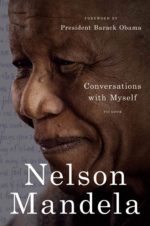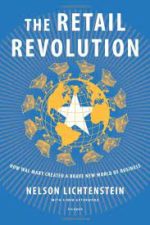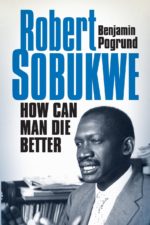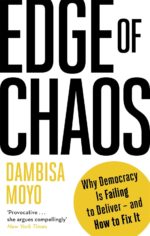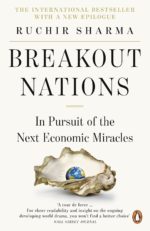-
Attributing Development Impact: The qualitative impact protocol case book
KSh 6,440.00Explore real-world applications of the Qualitative Impact Protocol (QuIP) in Attributing Development Impact: The Case Book. Learn how this innovative approach uncovers causal links, amplifies voices of beneficiaries, and strengthens evaluation in international development.”
Substantiating cause and effect is one of the great conundrums for those aiming to have a social impact, be they an NGO, social impact investment fund, or multinational corporation. All face the same quandary: how do you know whether, or how, you contributed to an observed social change? A wide range of impact evaluation methodologies exist to address this need, ranging from informal feedback loops to highly elaborate surveys. But generating useful and credible information in a timely and cost-effective way remains an elusive goal, particularly for organizations working in complex, rapidly evolving and diverse contexts. Attributing Development Impact brings together responses to this challenge using an innovative impact evaluation approach called the Qualitative Impact Protocol (QuIP). This is a transparent, flexible and relatively simple set of guidelines for collecting, analysing and sharing feedback from intended beneficiaries about significant drivers of change in their lives. Innovative features include the use of ‘blindfolded’ interviewing to mitigate pro-project bias, and the application of a flexible coding system to make analysis and reporting faster and more transparent. The QuIP has now been used in seven countries (Ethiopia, India, Malawi, Mexico, Tanzania, Uganda and UK) with activities to promote food security, rural livelihoods, factory working conditions, medical training, community empowerment and microcredit for house improvement. This book includes comprehensive ‘how to’ QuIP guidelines and practical insights based on case studies from these countries into how to address the numerous methodological challenges thrown up by impact evaluation. Essential reading for evaluation specialists within NGOs, governments and donor agencies; social impact investors; community development practitioners; and researchers and students interested in evaluation methodologies.
-
The retail revolution
KSh 1,695.00Wal-Mart is the world’s largest company and it sets the standard–both social and commercial–for a huge swath of the global economy. In this probing investigation, historian Nelson Lichtenstein shows how the company’s success has spread evangelical Protestantism into the workplace, made South China an American workshop, and pushed American politics to the right. At the same time, he anticipates a day of reckoning, when challenges to the Wal-Mart way, at home and abroad, are likely to change the far-flung empire. Insightful and original, The Retail Revolution gives a fresh and necessary understanding of the phenomenon that has reshaped international commerce.
-
How Can Man Die Better-Robert sobukwe
KSh 1,500.00Archbishop Desmond Tutu on Sobukwe: ‘I am greatly privileged to have known him and to ave fallen under his spell. His long imprisonment, restriction and early death were a major tragedy for our land and for the world.’
On 21 March 1960, Robert Mangaliso Sobukwe led a mass defiance of South Africa’s pass laws. He urged blacks to go to the nearest police station and demand arrest. Police opened fire on a peaceful crowd in the township of Sharpeville, and killed 68 people. The protest changed the course of South Africa’s history. Afrikaner rule stiffened and black resistance went underground. International opinion hardened against apartheid. Sobukwe, leader of the Pan-Africanist Congress, was jailed for three years for incitement. At the end of his sentence the government, fearful of his power, rushed through the ‘Sobukwe Clause’ to keep him in prison without trial.
For the next six years, Sobukwe was kept in solitary confinement on Robben Island, the infamous
-
Sexuality and Gender Politics in Mozambique
KSh 1,499.00Winner of the 2012 gender research award KRAKA-prisen.
This book is about gender politics in Mozambique over three decades from 1975 to 2005. The book is also about different ways of understanding gender and sexuality. Gender policies from Portuguese colonialism, through Frelimo socialism to later neo-liberal economic regimes share certain basic assumptions about men, women and gender relations. But to what extent do such assumptions fit the ways in which rural Mozambican men and women see themselves? A major line of argument in the book is that gender relations should be investigated, not assumed, and that policies not matching people’s lives are not likely to succeed.
The empirical data, on which the argument is based, are first a unique body of data material collected 1982-1984 by the national women’s organization, the OMM [when the author was employed as a sociologist in the organization] andsecondly data resulting from more recent fieldwork in northern Mozambique.
Importantly inspired by African post-colonial feminist lines of thinking, the book engages in a project of re-mapping and re-interpreting ‘culture andtradition’. In this context, the book investigates in particular matriliny [c. 40 per cent of Mozambique’s population live under conditions of matriliny] and female initiation. The findings open new avenues for gender politics, and for rethinking sexuality and gender – in Africa and beyond.Signe Arnfred is Associate Professor, Dept of Society & Globalization, and Centre for Gender, Power & Diversity, Roskilde University
-
Screwed: The Undeclared War Against the Middle Class — And What We Can Do About It
KSh 1,495.00Our founding fathers worked hard to ensure that a small group of wealthy people would never dominate this country—they’d had enough of aristocracy. They put government to work to ensure a thriving middle class. When the middle class took a hit, beginning in the post-Civil War Gilded Age and culminating in the Great Depression, democracy-loving leaders like Theodore and Franklin Roosevelt, Harry Truman, and Dwight Eisenhower revitalized it through initiatives like antitrust regulations, fair labor laws, the minimum wage, Social Security, and Medicare.
So what happened? Air America Radio host Thom Hartmann shows that over the last twenty-five years, we’ve witnessed an undeclared war against the middle class. The so-called conservatives waging this war are only interested in conserving—and steadily increasing—their own wealth and power. Hartmann shows how, under the guise of “freeing” the market, they’ve systematically dismantled the programs set up by both Republicans and Democrats to protect the middle class and have replaced them with policies that favor the only the privileged few.
But the middle class is the very thing that makes America great. Thomas Jefferson himself believed that our very democracy depends upon our ability to play referee to the game of business, protecting labor and the public good. It is both our right and our responsibility, Jefferson wrote, to control “overgrown wealth” from becoming “dangerous to the state.”
We must not stand by while our democracy becomes a corporatocracy, serving an elite group of billionaire CEOs. There is another way. Thomas Jefferson knew how to build a middle class. Franklin Roosevelt knew how. We’ve done it before and we can do it, again. Following Hartmann’s commonsense proposals, we can recreate a prospering middle class that will ensure that our public institutions are not turned into private fiefdoms, meet people’s basic needs—for education, health care, a living wage—and keep America strong,
-
God’s Child On The Run-OMWA OMBARA
KSh 1,000.00New Year is one of the sweetest moments in Kenya, the climax of Christmas festivities that gather family from distant ends of the country for two weeks of laughter, sunshine, hugs, food, and drink. But in 2007, the dawn of a new year echoed with drums of war. A political contest for the country’s presidency went awfully wrong and in a span of hours, long buried tribal animosities seared to the surface, turning husband against wife and neighbor against neighbor.
Machetes clunked against innocent skulls, women were raped, children bludgeoned and the old and infirm violated and murdered in an orgy of violence that lasted weeks and shocked the world. This is a journalist’s account of the blood and tears that destroyed families and stained a nation. Only the politicians won.
-
The international politics of the environment
KSh 1,000.00Environment is now a key component of international relations and, given the rising attention climate change receives in particular (Welzer, 2012), a matter that now has high priority in diplomatic circles. With states in danger of disappearing below rising seas and major disruptions to water supplies and food systems projected for future decades if steps to curb greenhouse gas emissions are not taken soon, environmental matters have become central to contemporary international politics, and to their academic study (Webersik, 2010). Environment emerged after the Cold War as a priority matter for scholarly analysis because scholars are concerned with matters of pollution, conservation and resources; but also because there are interesting analytical puzzles surrounding how the international system deals with them and the changes resulting from the introduction of new modes of governance, institutions, agencies, knowledge and norms.


